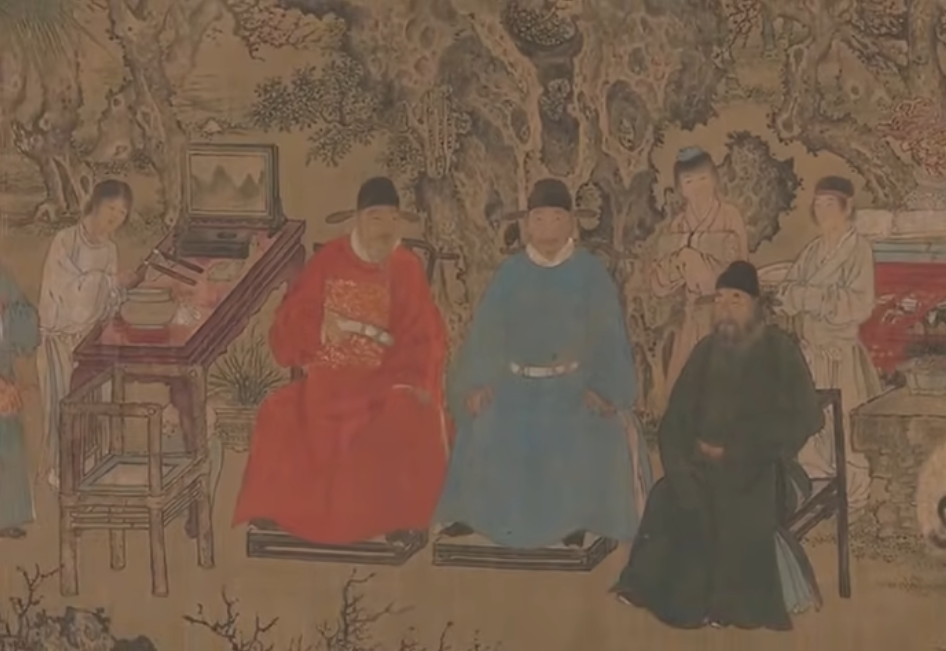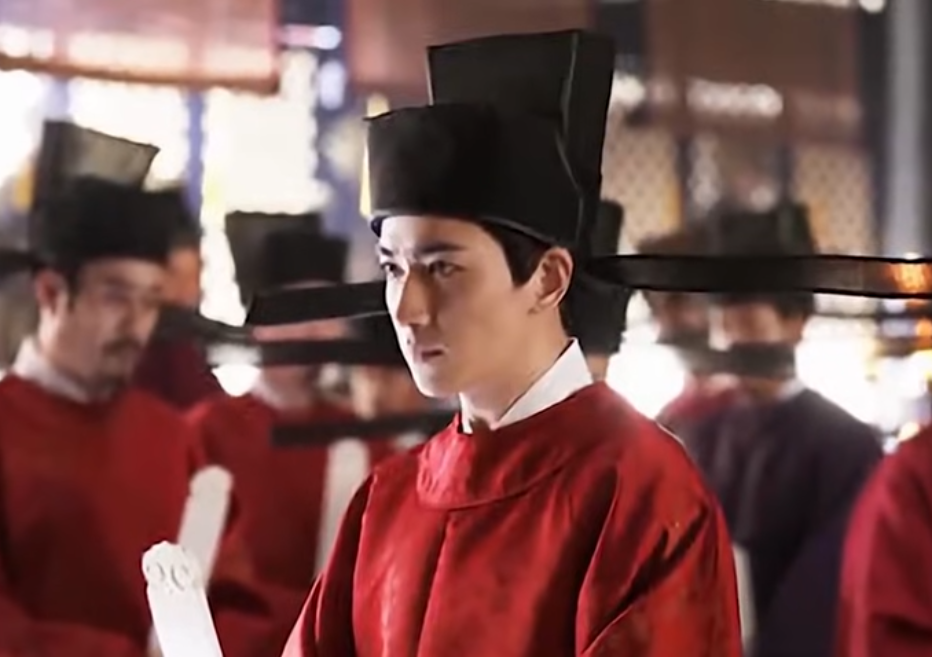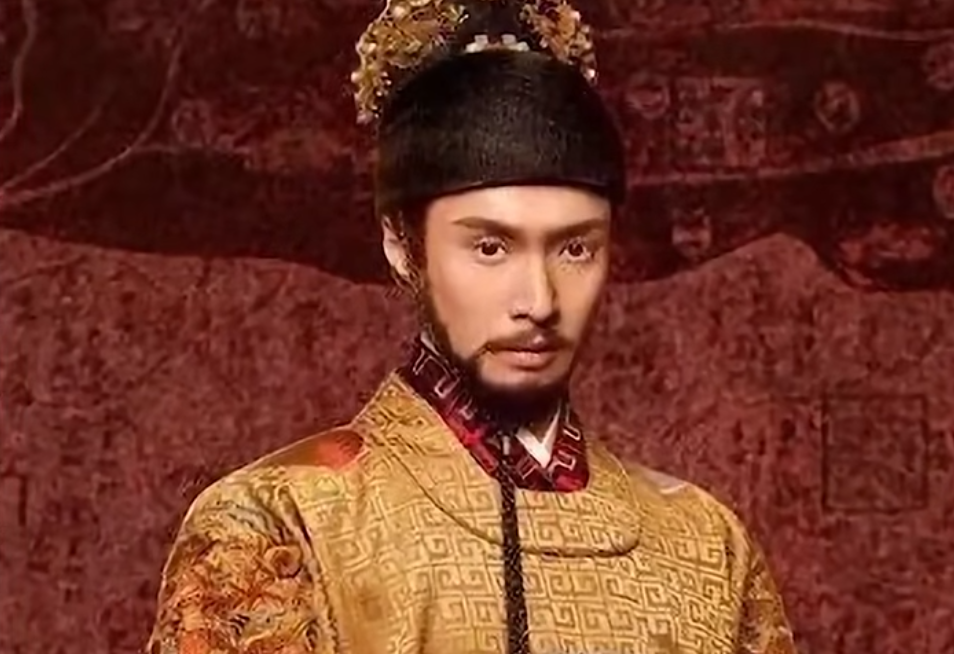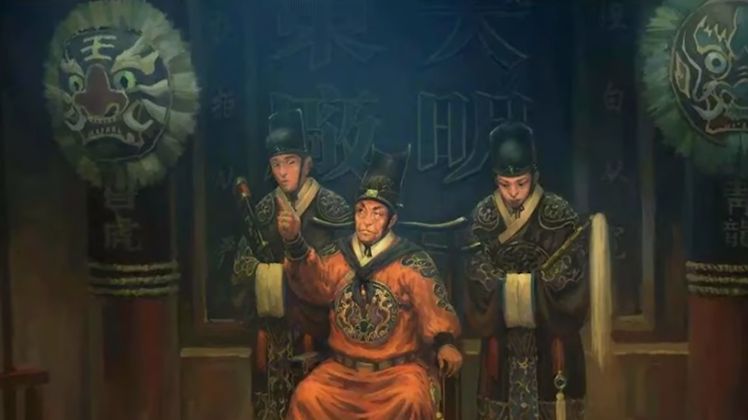In the history of China, the Ming dynasty is famous for its splendor lasting over 270 years. But alongside the glory, the Ming left behind a shocking number, about 100,000 eunuchs serving in the palace. One question arises: why did a dynasty need such a huge number of eunuchs during a king's reign? Where did they come from, what did they do, and how did the presence of eunuchs contribute to the decline of the Ming dynasty?
Why did the Ming have so many eunuchs?

To understand why the Ming had as many as 100,000 eunuchs, it is first necessary to clarify the role of eunuchs in ancient Chinese society. The tradition of using eunuchs has existed since the Han dynasty, even earlier. But by the time of the Ming dynasty, the scale and influence of eunuchs reached an unprecedented peak. Eunuchs were not just servants; they were special figures living in a contradictory world, both socially inferior yet capable of wielding great power.
Because they had no families or children, eunuchs were believed to be absolutely loyal to the emperor, not influenced by family interests like officials. This made them ideal tools for the emperor to use in managing the palace, supervising officials, and even participating in political and military activities. Under the Ming dynasty, the role of eunuchs expanded far beyond ordinary service tasks, and this led to a rapid increase in the number of eunuchs.
But why did the Ming need so many eunuchs?
Because the Ming was founded by Zhu Yuanzhang, a figure from the impoverished peasant class. After years of war and witnessing the decay of the Yuan dynasty, Zhu Yuanzhang harbored suspicion towards officials and the aristocracy. He believed that the corruption and betrayal of the elite had caused the fall of the Yuan dynasty, and he was determined not to let that happen during his reign. To consolidate power, Zhu Yuanzhang built a tightly controlled system, in which eunuchs served as the loyal eyes and ears of the emperor.

Unlike previous dynasties, the Ming promoted the use of eunuchs in the administrative apparatus. Zhu Yuanzhang was initially quite cautious with them, even ordering to limit the power of eunuchs to avoid repeating the mistakes of the Tang dynasty when eunuchs had manipulated the court. However, he still assigned them important tasks such as supervising officials and managing the harem. After Zhu Yuanzhang's death, succeeding emperors, especially Zhu Di, began to relax these restrictions.
Eunuchs gradually became an indispensable force not only in the palace but also in fields such as military, diplomacy, and intelligence. This expanded role led to an increasing demand for the number of eunuchs, laying the foundation for the figure of 100,000 by the end of the dynasty. One of the main reasons the Ming had such a huge number of eunuchs was the scale of the harem.
From the Forbidden City, the center of Ming power was a vast complex of palaces with thousands of rooms, hundreds of separate areas for the emperor, empress, concubines, and palace maids. Under emperors like Wanli, the harem could accommodate thousands of women, from concubines to servants. Maintaining such a large harem required a massive workforce to handle daily tasks: cooking, cleaning, laundry, managing jewelry, silk, and property.
Eunuchs were the only option for these jobs because they were allowed to enter the harem without raising security or moral concerns. Each concubine, princess, or small palace needed its own team of eunuchs to serve. According to historical records by the end of the Ming dynasty, the Forbidden City alone had about 70,000 eunuchs, not to mention those working in other palaces across the country. This number reached 100,000, reflecting not only the scale of the harem but also the increasing dependence of the court on eunuchs working in the operation of the palace. They were not just servants but also indispensable stewards handling every aspect of royal life.
Another important factor contributing to the huge number of eunuchs was the social circumstances during the Ming dynasty. In the 14th and 15th centuries, China's population surged while arable land was limited. Many peasant families fell into poverty, unable to support their children. In this context, sending a son to become a eunuch became a harsh yet practical option for many families. Although physically painful, becoming a eunuch offered a chance for a better life, access to the palace, housing, food, and if lucky, the opportunity to advance in the court system.

Some even voluntarily became eunuchs. This may sound unbelievable, but it reflects the desperation of the poor at that time. Being a eunuch was not only a way to escape poverty but also a path to rise in society, where education and examinations to become officials were unattainable for most people. The success stories of famous eunuchs like Zheng He, who went from a boy captured to a great mariner, further ignited hope for many. The combination of poverty and the opportunity for advancement created a continuous stream of people joining the ranks of eunuchs, pushing the number to a record high.
Under the Ming dynasty, eunuchs not only participated in ordinary activities but also held high power despite their lowly titles. One of the most powerful agencies of the Ming era was the Jinyiwei, a secret police force controlled by the emperor. Eunuchs were often assigned to run the Jinyiwei, supervise officials, and arrest those suspected of treason. They became the emperor's eyes and ears, infiltrating every corner of the state apparatus. Some eunuchs were even given greater responsibilities, such as commanding the military or serving as diplomatic envoys. Zheng He is a typical example as he led the Ming fleet on voyages across Asia and Africa, asserting the dynasty's power.
But with greater power, eunuchs were also more prone to corruption. Many exploited their close proximity to the emperor to accept bribes, form factions, and manipulate the court. A notorious figure was Wei Zhongxian, the most powerful eunuch of the Ming dynasty. Wei Zhongxian almost controlled the entire court, eliminating rival officials and building a vast network of henchmen. His and other eunuchs' rampant behavior caused chaos in the court, laying the groundwork for future crises. The presence of all 100,000 eunuchs at the end of the Ming dynasty was not only a symbol of extravagance but also a factor that contributed to the dynasty's decline.

As the number of eunuchs increased, their power also expanded beyond their original role as servants. They became political forces, intervening in every aspect of the court, appointing officials, and managing finances. The manipulation by figures like Wei Zhongxian also weakened the Ming apparatus, sidelining talented officials and replacing them with loyal but incompetent ones. Corruption spread from the court to villages and localities, causing increasing public discontent. Additionally, maintaining 100,000 eunuchs was a massive economic burden.
They required salaries, housing, clothing, and many other expenses, consuming a large portion of the dynasty's budget. Meanwhile, the Ming faced a series of natural disasters, floods, droughts, and wars. Money was wasted, and eunuchs left the court without enough resources to alleviate famine, recruit armies, or strengthen borders. This imbalance drained the Ming economy, paving the way for peasant uprisings, notably the rebellion of Li Zicheng.
Eunuchs also caused serious divisions within the court. Eunuchs often clashed with officials, creating opposing factions. Officials viewed eunuchs as a threat while eunuchs saw officials as competitors. This discord caused the court to lose unity, making it unable to make effective decisions to address crises. By the late Ming years, when the Manchus invaded from the north and Li Zicheng entered Beijing, many eunuchs chose to flee or betray rather than protect the court. Emperor Chongzhen, in despair, ended his life on a hill near the Forbidden City, marking the end of the Ming dynasty. The fall of the Ming was not only due to eunuchs but also a combination of many factors: corruption, natural disasters, wars, and economic crises. But the 100,000 eunuchs symbolized a system that had lost control, where servants became rulers and loyalty was replaced by personal ambition.
